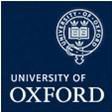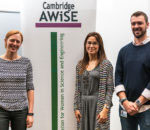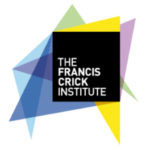From its earliest days the LMB has attracted and trained first class scientists from around the world – creating a diverse community for the exchange of ideas and technical innovation. The LMB provides excellent opportunities for early career and established researchers – people with the potential to lead their field. A high percentage of LMB students and post-docs stay in research or science related fields after they leave the LMB. The LMB supports the wider scientific community by supplying highly trained scientific leaders. They leave the LMB to develop and support molecular biology both in the UK and throughout the world.
Clotten Foundation Prize 2015 awarded to Professor Terry Rabbitts

Terry Rabbitts, LMB 1973-2006, Group Leader & Division Head, PNAC
Professor Terry Rabbitts has been awarded the inaugural Clotten Foundation Prize 2015 for discoveries on human antibody genes leading to therapeutic antibodies, and discoveries on chromosomal translocations in cancer leading to novel therapeutic approaches. More…
LMB CamAWiSE annual ‘What next for your career in science’ event

Hayley Sharpe, LMB 2006-2011, PhD Student, Cell Biology
The LMB and CambridgeAWiSE recently held their 10th annual ‘What next for your career in science’ event at the LMB. Three speakers from diverse scientific industries discussed their respective professional experiences. The networking event welcomed early career researchers from all over Cambridge to hear about these different career opportunities.
Knighthood for Richard Treisman

Richard Treisman, LMB 1984-1988, Scientific Staff, Director's Division
Richard Treisman, biochemist, molecular biologist and Research Director at the Francis Crick Institute, has been knighted in the Queen’s Birthday Honours for services to biomedical science and to cancer research. More…
Lauren Parker Jackson and Kristian Andersen named as Pew Scholars for Biomedical Sciences

Lauren Parker Jackson, LMB 2003-2007, PhD Student, Structural Studies, Kristian Andersen, LMB 2004-2009, PhD Student, PNAC
The Pew Charitable Trusts have named 22 exceptional early-career scientists as Pew scholars in the biomedical sciences, including Lauren Parker Jackson and Kristian Andersen , both former LMB PhD students. More…
Jernej Ule and Ian Tomlinson elected to EMBO

Jernej Ule, LMB 2006-2013, Tenure track programme leader, Structural Studies. Ian Tomlinson, LMB 1994-2001, Postdoctoral staff and group leader, PNAC.
Two former LMB group leaders have been named as new EMBO members. Jernej and Ian are among 58 new members to join EMBO, who elect new members annually on the basis of scientific excellence and outstanding research contributions. Jernej is now at The Francis Crick Institute and UCL Institute of Neurology, while Ian is at the Wellcome Trust Centre for Human Genetics, Oxford. More…
Steven Brenner named Fellow in International Group
LMB 1993-1996, PhD student, Structural Studies
Former LMB PhD student Steven Brenner has been named a fellow by a prestigious computational biology association for his groundbreaking research in protein analysis and genetics. More…